How Much Does Home Security Systems Cost?
Average Cost Of A Home Security System – $400 to $1,800
Home security systems cost between $250 and $2,800, depending on the features and needs. More basic systems with monitoring services cost between $300 and $500. More complex setups with smart home integration and complete monitoring can cost between $1,000 and $2,500.
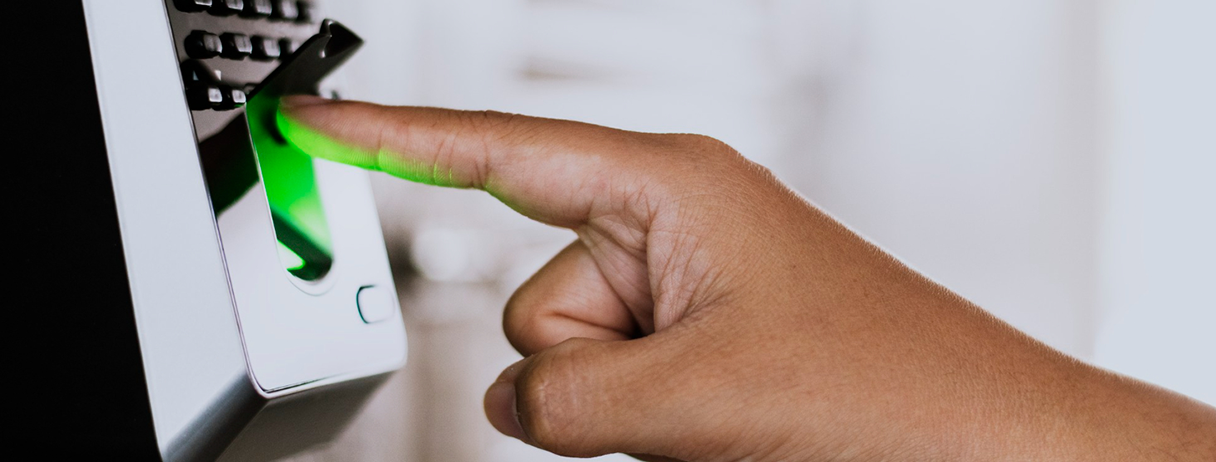
Table Of Contents
- Introduction
- Components of a Home Security System
- Home Security Systems & Technical Details
- How Much Do Home Security Systems Cost in Australia?
- Costs for Various Additional Components Of Home Security
- Average Home Security System Installation Costs by City
- DIY vs. Professional Installation Cost Comparison
- Compare Top Home Security Systems By Price And Features
- Factors Affecting Home Security System Costs
- How To Plan Your Home Security?
- Wired vs. Wireless Home Security Systems
- Choosing the Right Security System for Your Family
- DIY vs. Professional Installation: Which Is Right for You?
- Conclusion
- FAQs
Comprehensive Guide to Home Security Systems in Australia: Types, Costs, and Key Benefits
Home security systems come in a wide range of options and prices, making it easier to find something that fits your needs and budget. You may have seen people posting on the community forum, like:
- I’m renting a house—what are the best budget-friendly and portable security systems I can use? Most renters often choose easy-to-install, portable systems that don’t require drilling or permanent modifications.
- Can you recommend a few home security systems that offer good value for money and don’t require a long-term contract? Most homeowners and renters prefer no-contract systems that offer flexibility, affordability, and essential features like motion detection, alarms, and app control.
Home security systems can be chosen according to your needs. Traditional hardwired systems typically range between $800 and $1,600. These are reliable but may require professional installation and wiring throughout your home. On the other hand, wireless security systems are more flexible and easier to install. Wireless security systems generally cost $500 to $1,000. Many affordable home alarm system options offer smart home integration and mobile control.
The cost of a home security system depends on the type, features, and installation. In this guide, we’ll explore the typical costs and what influences home security system costs in Australia. You will also know about various types of security systems, their technical details and components, the cost of installing a security system, and key considerations before installation.
Why Investing in a Security System Is Worth It
- Installing a home security system deters burglars. Ninety-three percent of burglars avoid homes with visible security systems, significantly reducing the chances of a break-in.
- It protects your loved ones, reduces insurance costs, and ensures peace of mind 24/7. Installing a security system can reduce your home insurance premium by up to 20%, offering long-term financial benefits.
- They add value and security to your home. 70% of Australian homeowners feel more secure after installing a security system, leading to peace of mind and better safety.
- Cameras can capture footage useful for police investigations or insurance claims. Whether you’re at home or away, you’ll feel more secure knowing your property is protected.
- Monitored systems alert emergency services within seconds, even if you're not home.
- Many systems include or integrate with smoke and CO alarms, adding life-saving protection.
- Smart systems let you see who’s at the door, grant access remotely, or receive alerts if doors/windows are opened unexpectedly.
Like these, there are many benefits of installing security screens and systems in your house.
Components of a Home Security System
These days, it is prudent to secure your house from possible thieves and other dangers. Apart from scaring the criminal intent to commit an invasion, they also alert the police in case of danger. A comprehensive home security system encompasses all the facets that guarantee the safety and security of your house. The most popular ones are as follows:
- Control panel: This is the hub of the system, where all the controls are located.
- Security cameras: They are employed for surveillance both indoors and outside.
- Key fobs: Small items that can easily arm and disarm the system.
- Lighting: Well-lit areas around your home discourage a thief from entering your house.
- Motion sensors: Detect any unusual movement around your property.
- Window and door sensors: Alerts will sound if a window or door is opened unlawfully.
- Locks: Remote access to your property for added security.
- Security doors and screens: An added layer of physical security.
All of the devices you install at your home are useful, and the design and requirements of your particular property can lead to a situation whereby you'll have to install a number of these.
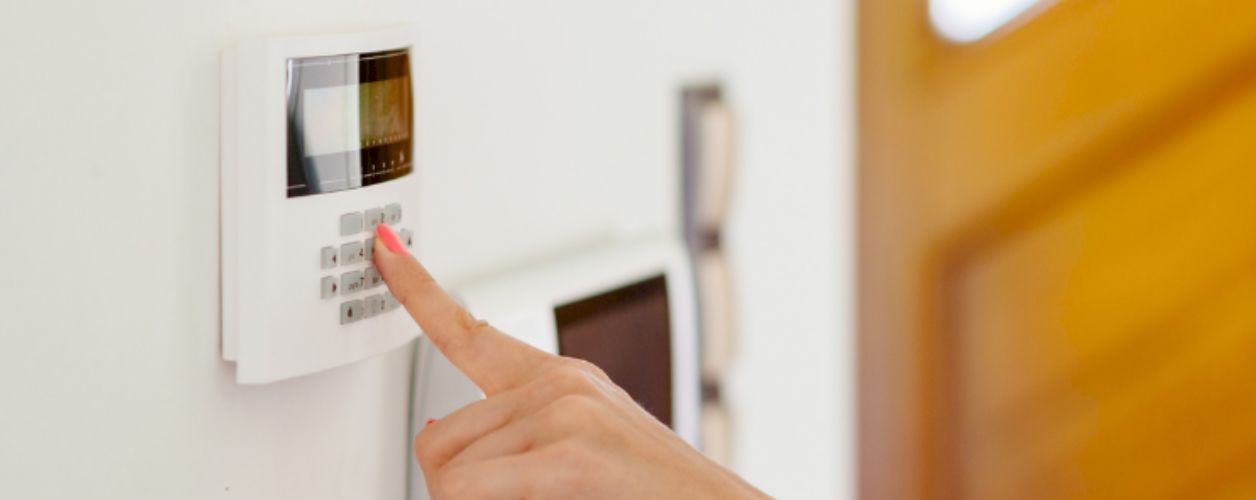
Home Security Systems & Technical Details
- Resolution: The standard home security cameras now are available with 1080p or 4K resolution, which presents better clarity in both day and night vision.
- Storage Options: Integration of Cloud storage, but on-premises storage using devices like DVR (Digital Video Recorder) or NVR (Network Video Recorder) would provide greater security and control.
- Wi-Fi Connectivity: It is often the case that devices and the central control hub of wireless communication or interaction may carry out their work via Wi-Fi. However, within home security setups, Z-Wave and Zigbee protocols are used instead; these protocols consume less power and possess a longer range for respective devices.
- Cellular Backup: Cellular backup is quite essential to any home's wireless systems if the internet connection goes down. Be sure that your system has 4G LTE backup so you know that your house will always remain safe even with network outages.
- Cloud Storage: Most smart security systems come with a cloud storage plan with video stored at an off-site, secure location. The monthly cost can vary, and retention can be set anywhere from 7 days to 30 days or more.
- Voice Assistants: By integrating your security system with services like Google Assistant or Amazon Alexa, you may use voice commands to activate or disable it.
- Mobile Apps: Most of the new systems come with live alerts, remote video monitoring, and controls from any corner of the world through your smartphone.
- Two-Way Audio: With two-way audio-enabled cameras, you can communicate with someone present beside the camera through the app on your smartphone. You could interact with the visitors or scare away the intruders from a safe distance.
- Facial Recognition: Some advanced security cameras can recognise faces, identify familiar family members, and detect perceived intruders. Thus, you get fewer false alarms.
- Module Design: Many of these systems are expandable to your needs. Start with a basic configuration of cameras and door sensors and add motion detectors, glass-break sensors, or smart locks as needed.
- Sensor Integration: There are many additional sensors, including environmental smoke, carbon monoxide, and flood. These can be added seamlessly into your security network.
How Much Do Home Security Systems Cost in Australia?
Based on the national average, the cost range for security systems is $400 to $1800. Besides equipment, installation charges account for a sizeable portion of your entire cost. $700-$1,900 for strictly an activation of a basic security system and also its installation, wiring, and control panel set-up. The monthly monitoring fees for home security are $15-$60. The variables include the kind of system, the size of the property, and whether the owner installs it or hires a professional. You can get quotes from local home security experts now for a clear idea. The average cost to install alarm system in a 3-bedroom house is $100 to $250. Below is a breakdown of how much home security systems cost:
Average Cost of Security Cameras
Not to mention, security cameras accompany any home security system. These camera systems can range in price between the following:
- $100 - $200: Single wi-fi camera with HD and night vision. This is usually installed and utilized within your pre-existing Wi-Fi system.
- $1,000 - $1,500: Four outdoor IP66-rated cameras, 8-channel PVR, and 1TB. Each camera would provide night vision combined with remote viewing via a smartphone.
- $500 - $1,000: Smart wireless security systems packaged with lots of advanced features, including cloud storage. Three or more HD night-vision cameras are included with any installation, which can be used indoors or outdoors.
- $1,400 - $2,000: This package includes four HD cameras with night vision, a 4-channel PVR, and the possibility of smartphone monitoring. Such kits ensure full coverage for homes that occupy a large space.
Wireless Home Security System Costs
A wireless home security setup is enough if you are on a tight budget. Here's what you'll get from a wireless alarm system:
- $400-$700: A wireless system consisting of a 3G-compatible security console, two motion sensors, one window/door sensor, two keychain remotes, and two RFID tags. This system can be installed by the customer and is expandable.
- $1,500 - $2,500: Advanced wireless installation by experts. Such a system may include more sensors, security cameras, and integration with smart home devices.
Home Monitoring System Costs
Homeowners may also opt for professional home monitoring, which provides an extra layer of security. Professional home monitoring is a fee-based service under which a company monitors the system for you around the clock. The monthly monitoring fees for home security are $15 to $60.
- $1,500 - $2,000: The typical wireless alarm system with installation offers a control panel, two PIR sensors, a door contact, a wireless keypad, and a 3G SIM card to activate a backup system in case of internet loss.
- $2,500 - $3000: Provides third-party 24/7 monitoring. This means that the active alarms lead to prompt responses from the alarm receiving centre.
- $350-$500: Basic aluminium screen doors, which sum up to a decent budget, provide good protection.
- $650-$800: Made-to-measure security doors have stainless steel mesh, and with this, one would be getting stronger security and durability.
- $1,000-$1200: The largest security doors can be very expensive, and the bills can go above $1,000. These are mostly high-class security doors produced by top-class brands and have every feature anyone might need, from the most current protection system to smart locks.
Except for installation, which is paid upfront, most monitoring services charge a monthly fee, which ranges between $15 and $60.
Security Screens and Doors Cost
The next option of security that is offered to homes is the installation of security screens and doors. The screens and doors are the physical barriers to safety. This varies in price according to the material, size, and quality of screens:
The types of doors above can be fitted during the construction of the house. If you build a new house, install them. However, it is also possible to fit them in later. For an accurate installation price estimate, get quotes from screen and door installers.
Costs for Various Additional Components of Home Security
The kind of equipment, the intricacy of the configuration, and any extra smart features affect how much it costs to establish a home security system. To assist you in creating a budget, the following common features and their related prices are listed:
Control Panel
The control panel, which is the central component of the security system, normally costs between $200 and $600. Depending on the provider, installation and activation fees may add $100 to $200. CCTV Surveillance Equipment systems with extra costs start at about $250 and average the monthly surveillance fee at $30.
Motion Detectors and Sensors
These are essential for seeing movement in the house. They might cost from $50 to $150 apiece for installation and activation. The number of sensors needed may vary based on the size of the home; installation costs could go up by $100 to $300.
Key Fobs
These little, portable gadgets let you arm and disarm the system remotely. They usually cost between $30 to $100 per fob, based on the technology and range of features available.
Lighting
The average price range for motion-activated or smart lighting systems that integrate with your security system is between $50 and $200 for each light fixture. The cost of installation varies according to the intricacy of the wiring and whether the system is integrated with other home automation systems.
Locks
Keyless entry systems and smart locks can cost anywhere between $100 and $300 per door. For improved control, these locks can be integrated with security systems. This works, enabling homeowners to remotely lock and open doors using a mobile app.
Alarms
The price range for basic alarms, which go off when an unauthorised entrance is discovered, is between $100 and $500. Costs may increase for more sophisticated systems with panic buttons or sirens, especially if they are connected to a monitoring service.
Hardwired Systems
The cost of establishing a fully hardwired security system normally ranges from $1,000 to $5,000, according to the size and complexity of the home. This covers the cost of labour for installation as well as all wiring, control panels, and sensors.
Smart Home Security
Depending on the degree of automation and connectivity, smart security systems that interface with other gadgets (such as cameras, smart speakers, or thermostats) can cost anywhere between $500 and $2,500. Advanced features like smart alerts, face recognition, and remote monitoring are available with these systems. Homeowners can more effectively prepare for the security solutions that best suit their demands and budget by being aware of these price estimates.
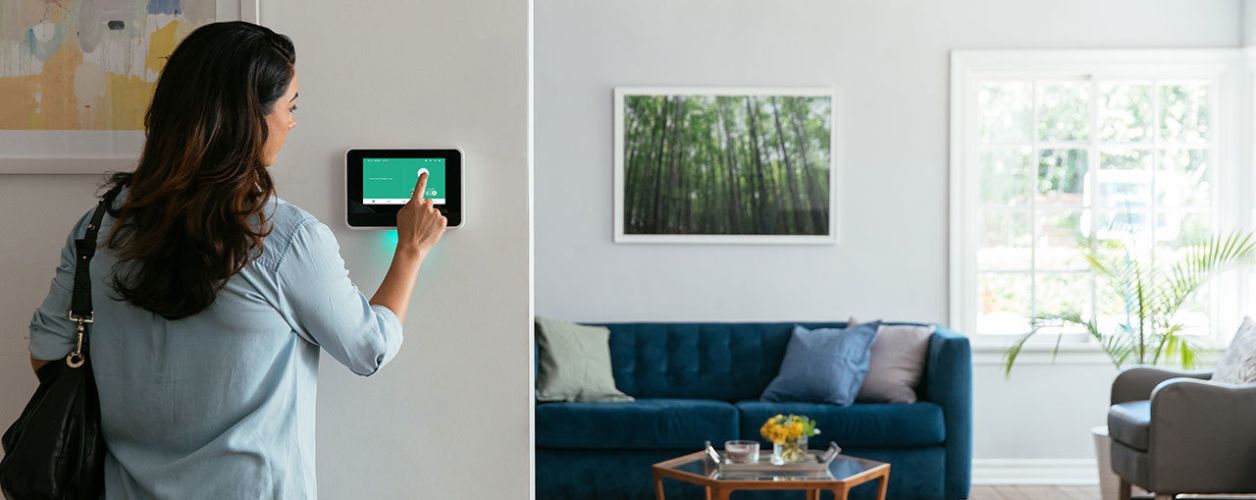
Average Home Security System Installation Costs by City
The installation prices for home security systems vary from city to city in Australia. Here is a rough estimate of the different cities' average installation costs.
- Sydney: $850 - $1,150
- Melbourne: $1,000 - $1,300
- Brisbane: $1,800 - $2,900
- Perth: $550 - $1,500
- Adelaide: $1,000 - $1,600
- Canberra: $1,600 - $2,800
DIY vs. Professional Installation Cost Comparison
Do you know how much to install an alarm system? Here is a comparison of home security system costs in Australia for professional installation and DIY installation:
| Home Security System Type | Professional Installation Cost | DIY Installation Cost |
|---|---|---|
| CCTV (4-camera setup) | $800 - $1,500 | $400 - $800 |
| CCTV (8-camera setup) | $1,500 - $2,500 | $600 - $1,200 |
| Alarm System (Basic) | $400 - $800 | $200 - $500 |
| Alarm System (Advanced) | $18 - $33 | $500 - $1,000 |
| Video Doorbell (Smart) | $150 - $300 | $100 - $250 |
| Smart Door Lock | $200 - $500 | $150 - $300 |
| Motion Sensors | $150 - $400 (per sensor) | $50 - $150 (per sensor) |
| Glass Break Sensors | $200 - $500 (per unit) | $100 - $200 (per unit) |
| Security Lighting (with sensors) | $300 - $700 | $150 - $400 |
| Intercom System | $500 - $1,000 | $250 - $600 |
| Smart Home Integration (full system) | $2,000 - $4,000 | $1,000 - $2,500 |
| Smoke & Carbon Monoxide Detectors | $200 - $400 (per unit) | $100 - $250 (per unit) |
*Costs may vary based on system brand, complexity, location in Australia, and installer rates.
Compare Top Home Security Systems By Price And Features
| System | Best For | Starting Price | Key Features |
|---|---|---|---|
| SimpliSafe | Budget-friendly DIY setup | $149 | - DIY installation - Wireless sensors - Optional 24/7 monitoring - Mobile app control |
| Ring Alarm Pro | Smart home integration | $199 | - DIY installation - Wireless sensors - Optional 24/7 monitoring - Doorbell integration |
| Swann Security | Comprehensive coverage | $249 | - High-definition cameras - Local storage options - No ongoing fees - Robust camera systems |
Factors Affecting Home Security System Costs
We have seen queries like, "I’m looking to secure a 4-bedroom home in Sydney—can you estimate the total cost for a standard alarm system setup?" The total cost of installing a home security system depends on various factors. The given essential elements, which extend throughout the initial expenditures of the equipment and installation, can significantly impact your entire expenses:
- Type of Security System: Whether you choose a fully integrated smart home security system, CCTV cameras, or a basic alarm system, the price will vary. Higher-end systems with extra features, like remote monitoring, are usually more expensive.
- The Complexity of the Job: Older or difficult-to-layout homes may need more labour and complex wiring, which raises installation prices. Additionally, larger homes require more equipment, which raises the cost of labour and materials.
- Home & Contents Insurance: You can save money on your premiums for home and contents insurance by installing a security system. Although the original cost won't be decreased, security systems are still a wise investment in the long run. Because they lower insurance prices.
- Technological Advancements: While home automation, AI-based cameras, & smartphone integration for smart security systems improve convenience, they can also raise prices. Although it often costs more, newer technology offers better security and monitoring capabilities.
- Secret Activation Fees: Some security providers impose secret activation or setup fees after installation. This might unexpectedly increase the total cost. Contracts must be carefully read to understand any additional costs related to the system.
If you carefully understand these variables, it facilitates making well-informed choices and more precise budgeting for home security.
How to Plan Your Home Security?
You must take the time to consider your alternatives and arrange your security configuration before deciding to invest in a home security system. Among the security system installation things, here are a few things that you need to think about:
- How safe are your windows, door frames, hinges, locks, and outside doors?
- What kind of light exposure is necessary outside?
- What boundaries, both apparent (outside lighting) and real (a fence), are necessary to be covered?
- Which regions do you want your security system to cover?
- Which accessories do you want installed?
You can budget your project and receive an accurate cost estimate from your installer if you plan your home security system and know how much each component will cost.
Wired vs. Wireless Home Security Systems
What’s the difference in pricing between wired and wireless home alarm systems, and which one is better for a small home? You can see the wireless vs hardwired security system cost and other differences to choose between these two options.
Wired Systems
Wired systems utilize physical cables such that the data transmission tends to be stable as opposed to the interference or loss of signal in the case of wireless systems. They draw power continuously; wireless systems operate on a battery that needs replacement or recharging over time. The average cost range is $800 to $1,600.
Pros:
- Reliability: Wired systems provide uninterrupted power and data transmission, which minimizes the possibility of interference and connectivity problems.
- Continuous Power: Being a wired system with a constant power supply provides 24/7 surveillance and doesn't require a change in a battery.
Cons:
- Installation Complexity: It is always complicated to install the wired system because its installation requires professional guidance, as the wiring and setting of the system are quite complicated
- Flexibility: Wired systems, once installed, offer fewer adjustments than wireless systems.
Wireless Systems
Pros:
- Easy Installation: Most wireless systems are easier to install, and also it can also be a DIY installation, which saves installation costs
- Flexibility: Easily expand or reconfigure your security as needed
Cons:
- Battery Replacement or Recharge: Wireless cameras require that batteries need replacement or recharging, and maintenance considerations.
- Likely Interference: Wireless systems will experience connectivity issues due to interference or weak signal reception.
Cost Comparison:
- Wired Systems: Tend to be higher in costs, from $800 to $1,600, as they require professional installation and wiring costs. They might have smaller maintenance costs soon.
- Wireless Systems: These are normally lower in the initial cost of installation, ranging from $500 to $1,000, and could be easier to install as a do-it-yourself job. However, consider the possible cost of batteries that would need to be replaced and potential connectivity solutions.
A wireless system is easy to install or even flexible if you don't want to handle wires throughout the house compared to physical wiring.
Choosing the Right Security System for Your Family
The average cost of a home security system with cameras is immense. Factors such as the type of system, the size of the property, and installation choices explain this disparity. These key questions will be helpful for you:
What is your budget?
If on a tight budget, you would probably be looking for a wireless DIY system that you can install on your own. The bare essentials shall cost as low as $300, and the advanced ones will go for as high as $4,000.
How big is your home?
For smaller homes or apartments, a simple wireless security system with a few cameras and motion sensors should do it. Larger homes will probably require a wired system that can supply more coverage and reliability.
Do you need remote access?
If you want to be able to see your home from a distance, consider a system that has smartphone integration. Most wireless alarm systems now allow for full control over such a system from the phone, receive alerts, and sometimes even live video feed.
DIY vs. Professional Installation: Which Is Right for You?
There are a couple of things you want to weigh before you install that home security system to make sure that the system is going to meet your needs and fit within your budget.
DIY Installation
A DIY installation translates to buying the system and setting it up yourself, as well as doing all of the maintenance. Most modern systems are set up for non-technical ease, requiring no kind of technical expertise.
Pros:
- Save on cost: You'll save $100 to $400 because you do not need to pay for professional installation.
- Installation is easier: Install at your convenience and change modifications if needed. Devices can easily be moved about in case you change your mind.
- No configuration is necessary: You can manage and set up the installation exactly as you want, usually through a mobile phone app.
- More to do: It's your responsibility to get everything configured just right, and there's a good chance that will involve human error.
- Troubleshooting is challenging: When things go wrong, you're on your own (other than for customer support from the manufacturer).
- Time-consuming: Installation can be extremely time-consuming, depending on how high-tech the system happens to be.
- Installation by experts: For example, prospects can ensure everything will get installed correctly, with minimal chances of errors.
- Support: Many companies offer support, troubleshooting, and other solutions, thus bringing peace of mind.
- Integrated systems: Pros can enable you to integrate the security system with other devices in your house for a smooth time.
- Higher upfront cost: Professional installation ranges from $700 to $1,900 according to how complex the system may be.
- Scheduling required: You will have to spare some time so that the technician can come to your house, which can be quite inconvenient.
- Less flexibility: Once it is installed, a change of components or even moving might require you to call the technician again.
Cons:
Professional Installation
With a professional installation, you can benefit from having a professional technician who will go from the wiring to setting up the system and testing it to work perfectly.
Pros:
Cons:
Conclusion
Ultimately, securing your home is a personal choice, and your ideal setup can range from a few strategically placed cameras to a comprehensive, fully integrated Home Automation and Security system. The final cost will always reflect the complexity you choose and the features you prioritise. A complete solution often includes more than just intruder alerts; for total peace of mind, it's crucial to consider dedicated professionals for specific tasks. You'll want expert CCTV Installers to ensure optimal camera coverage and certified Fire Alarm Installers to protect your family from other potential dangers.
While a DIY approach can save on initial fees, for a robust, reliable, and professionally monitored setup, hiring professional Security System Installers is the wisest investment for long-term security. Whatever level of protection you decide on, Service.com.au connects you with the qualified experts you need to get the job done right.
Costs of various services and materials in this cost guide should be taken as estimates. These depend on location, preference and demands in the market.
Answers to Your Common Questions
- 24/7 Monitoring
- Motion Sensors
- Door/Window Sensors
- Security Cameras
- Smart Home Integration, And
- Mobile App Control
Indeed, a lot of security systems allow for DIY installation, which can reduce installation expenses. Professional installation, however, guarantees the best arrangement and performance.
Yes, most systems charge a monthly price for monitoring services. Depending on the provider and package, this amount might be anywhere from $10 to $60.
When selecting a provider, consider factors like reputation, client testimonials, features that are offered, cost, terms of the contract, and customer service. It may be easier to find the best solution for your needs if you compare several possibilities with ServiceTasker️.
YOU MIGHT ALSO BE INTERESTED IN

How Much Does Home Security Systems Cost?
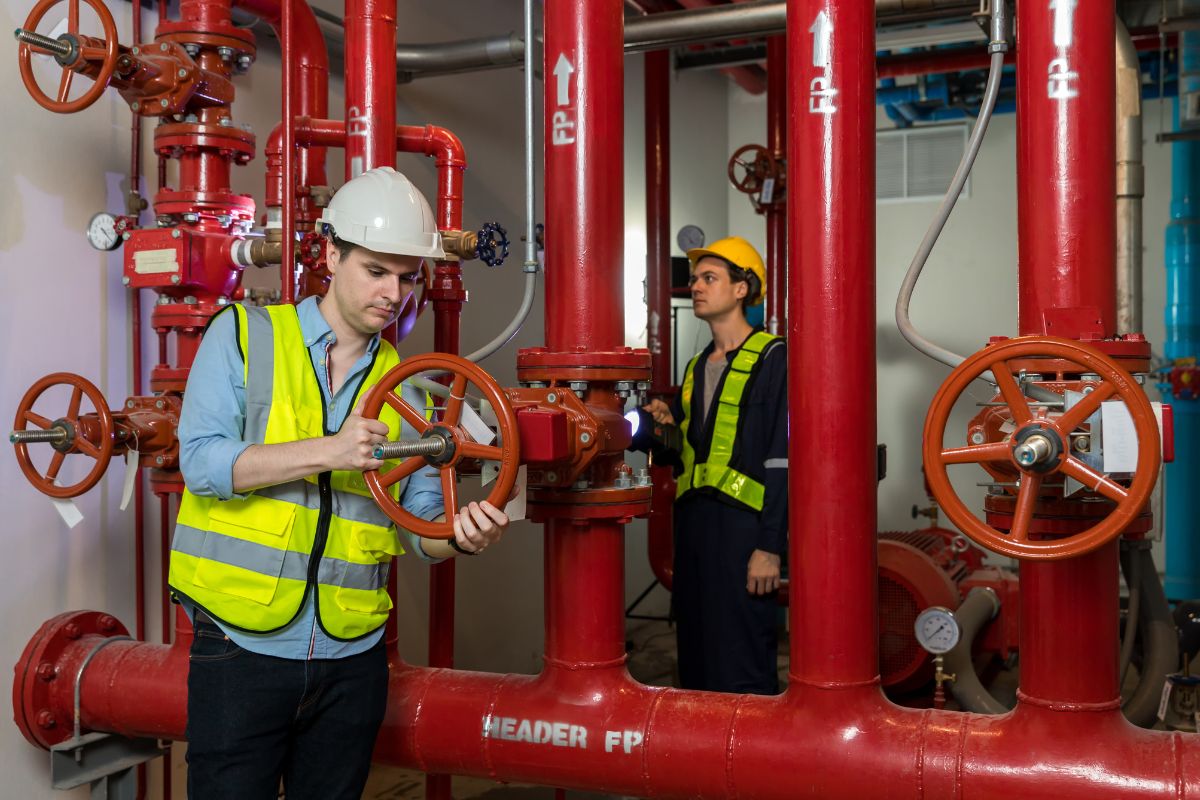
How Much Does Fire Alarm Installation Cost?
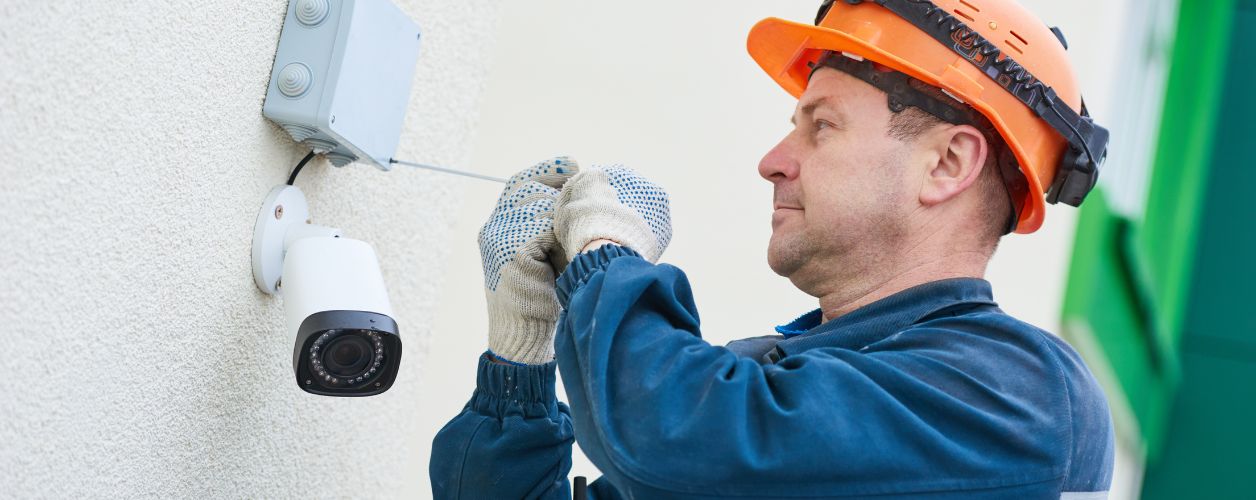
How Much Does CCTV Installation Cost
Capital Cities
- Home Automation and Security Services in Melbourne
- Home Automation and Security Services in Brisbane
- Home Automation and Security Services in Sydney
- Home Automation and Security Services in Adelaide
- Home Automation and Security Services in Perth
- Home Automation and Security Services in Canberra
- Home Automation and Security Services in Hobart
- Home Automation and Security Services in Darwin




